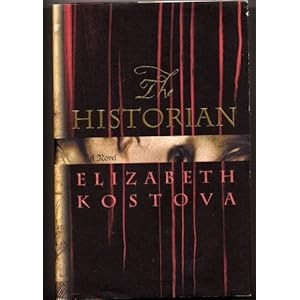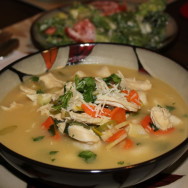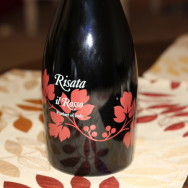 Let me preface this by saying that historical fiction is, by far, my favorite genre for novels. (The same is not necessarily true for poetry and film though.)
Let me preface this by saying that historical fiction is, by far, my favorite genre for novels. (The same is not necessarily true for poetry and film though.)
Elizabeth Kostova’s novel, The Historian, is in the upper echelon of the historical fiction genre; the story is woven together with strands of psuedo-historical and anthropological research of folklore.Couple this approach to story telling with an array of eastern European backdrops and the resulting novel is quite mesmerizing. However, before I delve too far into the accolades of this novel, I must admit that my expectations for this novel and what it actually is proved very different. I was outraged that just a well-written historical novel could bridge so quickly from a study of eastern European folklore to a fantastical story of vampirism. And yet, despite this jarring merger, the convincing characters and impeccable pacing lulled me back into the grips of this riveting tale.
Having successfully fought my way past my initial disdain for Kostova’s blatant disregard for the conventions of the genre, I began to appreciate the blurred lines between the fantastical/mythological vampire and the political tensions rooted deeply in European history. By focusing so much on the Turkish, Romanian, Hungarian, and Bulgarian versions of the vampire mythos and less on the Hollywood/Stoker/Western/romanticized versions, Kostova successfully entrenched vampirism in the pursuit of knowledge. To cast Dracula as a well-traveled, soft-spoken scholar of centuries of politics is thought-provoking and unique. I’ve re-read this book on numerous occasions and have still failed to identify precisely how Kostova manages to convince me, the reader, that vampires are a believable and perceivable threat in contemporary society; the point however, is that she does make this believable.
Beyond this fantasy versus historical fiction genre issue, interesting as it may be, are the compelling characters of the novel. The family, structured around a single father and teenage daughter who both actively mourn the long-absent mother, is unconventional but surprisingly believable. The father, educated as an historian and professionally a diplomat, travels often and brings the daughter along, sharing his vast knowledge of European architecture and centuries-old political debates as well as the story of the girl’s mother. It is a well-paced reveal, elegantly simple and emotionally balanced.
For offering a new perspective on a myth so dominated by contemporary pop culture, I truly enjoyed this novel. Furthermore, it is one of the best-written and artfully-crafter stories I have had the pleasure of picking up by chance in a long time. So even if you do not often find yourself seeking out and embracing fantastical literature, head to your nearest library or bookstore and you’ll find this novel safely in the fiction section; for those of you who do love fantastical literature, I also highly recommend you veer slightly away from the Sci-Fi and Fantasy section and into the fiction shelves to read this too. It is an impressive merge of two genres that are too often considered incompatible. I give this book two thumbs up!






